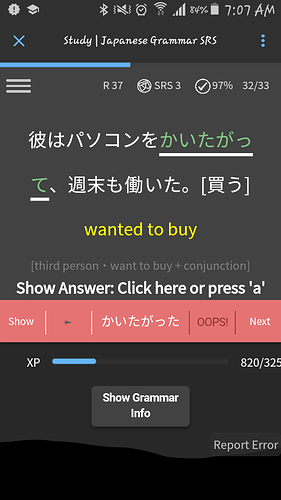Hey 
Basically, to connect two predicates (verbs in this case) we need a て form. Also, て form can mark reason or cause (like から and ので - but it is much weaker than those, generally て form means “and”), and translation wants “so” which points that you need one of those.
But て form lacks conjugations, so the tense of the last predicate (verb in this case) tells us about the tense of the predicate in て form (verb in て form in this case).
If you used 彼はパソコンをかいたがった by itself then clauses (parts of a sentence) wouldn’t be connected in any way. Basically, you would have two sentences (and one without finishing dot - “。”)
彼はパソコンをかいたがった。週末もはたらいた。
He wanted to buy a computer. Worked also on weekends.
かれはパソコンをかいたがって週末も働いた。
He wanted to buy a computer, so (and) he worked on weekends.
Though if you used かいたがったから or かいたがったので it would be also perfectly acceptable.
彼はパソコンをかいたがったから(ので)週末もはたらいた。
He wanted to buy a computer, so he worked also on weekends.
I hope the explanation is clear 
Just noticed lack of “so”. (fixed)
Sorry for the inconvenience! 


Adding onto @mrnoone’s explanation, the tense of the て-form verb (買いたがって, in this case) is determined by the final verb (which is 働いた here). Since this sentence ends with た-form, 買いたがって is also understood to be in past/completed tense.
Clauses that are joined by the て-form like this are also generally considered sequential events/actions:
[1st clause] [て-form] [2nd clause] ~= [1st clause] [and then/and so] [2nd clause]

